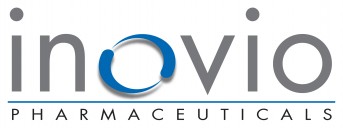
Inovio Pharmaceuticals has announced its DNA-based monoclonal antibody product for flu produced broadly cross-reactive antibodies that provided complete protection from a lethal challenge with multiple viruses from both influenza A and B types in a preclinical study. Results of this study in mice were published in the journal NPJ Vaccines in an article entitled “DNA Inoculation of Synthetic Cross-Reactive Antibodies Protects Against Lethal Influenza A and B Infections,” authored by Inovio and its collaborators.
Following on previously reported similar data from its dMAb products for HIV, dengue, and Chikungunya, this study further validates the ability of Inovio’s dMAb technology platform to use encoded DNA plasmids to enable in vivo production of monoclonal antibodies and induce protective immune responses. The goal for this platform is to rapidly generate therapeutic monoclonal antibodies directly in the recipients. Such benefits are complementary to Inovio’s antigen-generating platform in terms of immune mechanism and short response times, and advantages that overcome conventional monoclonal antibodies’ long development lead times and complex manufacturing processes and costs.
Inovio’s dMAb products deliver DNA sequences that encode and directly result in the in vivo production of protective antibodies, unlike its DNA vaccines which attempt to incite the production of antibodies through the immune system. In the case of influenza and other infectious disease, a dMAb product may provide immediate and short term protection while a DNA vaccine may provide long term immune memory and protection. Both products can be encoded to provide cross-strain protection. Inovio’s influenza dMAb product was designed to provide cross-strain protection across two major sub-types of influenza, A and B. This approach would bypass the burdensome design and manufacturing approach for conventional monoclonal antibodies that make them less ideal for pandemic situations and would be desirable in their potential ability to offer prevention against unexpected changes of seasonal influenza strains.
“The annual flu vaccine matching process is not a perfect science, therefore in some flu seasons the vaccine available in the fall is much less effective,” said Dr. David B. Weiner, Executive Vice President and Director of the Vaccine and Immune Therapy Center at The Wistar Institute and the lead author of the study. “Flu occasionally can dramatically shift strains, resulting in a pandemic strain that requires a new strategy for developing a vaccine and leaving populations at risk of major health consequences. Furthermore, some vulnerable people may not respond well to vaccines and this new approach that is simple, rapid and can broadly protect against influenza would be a major step forward,” said Dr. Weiner, who is also a member of the Inovio board and a scientific adviser.
Dr. J. Joseph Kim, Inovio's president and chief executive officer, said, “Inovio’s dMAb products represent a new class of products we are developing to treat cancers and infectious diseases using our potent platform. Funded by over $60 million in grants from DARPA, NIH, and the Gates Foundation, these dMAb products can extend the medical benefits that marketed monoclonal antibodies have already achieved and potentially address diseases that conventional monoclonal antibodies cannot. With respect to influenza, our dMAb product offers a new game-changing model to address seasonal and pandemic influenza with a single dose. We look forward to advancing the first dMAb product – our therapeutic Ebola product funded by DARPA – into human testing in 2018.”
While Inovio is advancing its dMAb technology against infectious disease targets, this platform is applicable beyond these diseases. Conventional monoclonal antibodies are costly and time consuming to develop, produce and study. They are manufactured outside the body, typically requiring costly large-scale manufacturing facility development and laborious production. Inovio’s DNA-based monoclonal antibodies have the potential to overcome these limitations by virtue of their simplified design, rapidity of development, product stability, ease of manufacturing and deployablity, and cost effectiveness, thereby providing potential new avenues for treating a range of diseases.
Monoclonal antibody platform achieves, proof-of-principle validation